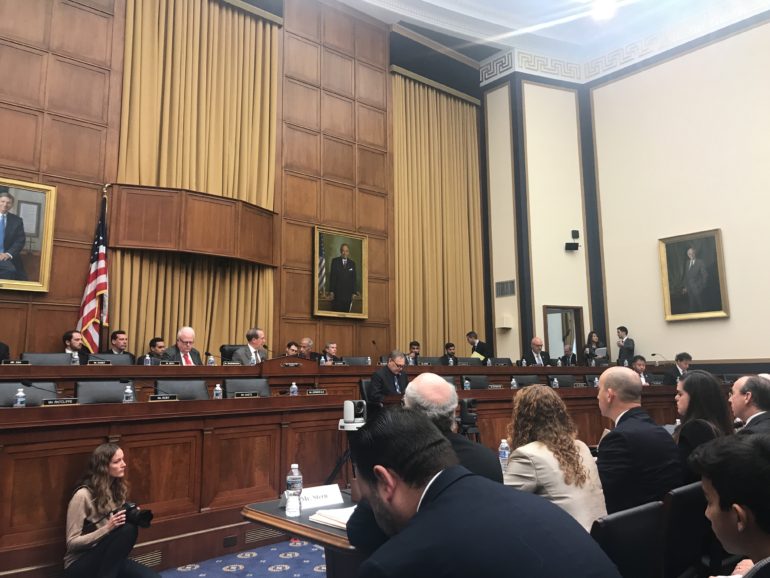WASHINGTON – Maryland Rep. Jamie Raskin, D-Kensington, proposed Tuesday that religious discrimination on college campuses should be prohibited under the landmark Civil Rights Act of 1964.
That law already bars religious discrimination in hiring, but the congressman said the law’s protections need to be broadened.
“People have a right to go to college and to universities without being vilified or intimidated because of their race, their ethnicity, their national origin or their religion,” Raskin told Capital News Service in an interview. “Right now, Title VI (of the Civil Rights Act) does not include religion as a prescribed basis for discrimination on campus, and I would be very eager to add that so that people could not be religiously harassed on campus.”
His statement followed a House Judiciary Committee hearing on the rise in anti-Semitism and related hate crimes in institutions of higher education.
“While our federal civil rights laws have long addressed discrimination based on race, sex, and ethnicity, a debate is ongoing regarding whether anti-Semitism on college campuses warrants a unique response compared to how harassment based on race or sex, for example, is addressed,” said Rep. Bob Goodlatte, R-Virginia, chairman of the House Judiciary Committee.
Raskin stressed that although the hearing was focused on anti-Semitism, changing Title VI would be beneficial for all religious minorities.
That section of the law currently prohibits discrimination on the basis of race, color or national origin in any programs that receive federal funds.
“There’s been a rise in hate crimes across the board since the beginning of 2017,” he said. “I think we’ve seen a dramatic spike in racially-oriented crimes, religiously-oriented crimes, hate violence and incidents directed at minorities, so we’re looking at ways to address that.”
The witnesses in the congressional hearing concurred that their research shows an uptick in anti-Semitic hate crimes, specifically after the white nationalist protests in Charlottesville, Virginia, that took place in mid-August.
Jonathan Greenblatt, CEO and national director of the Anti-Defamation League, told the committee that the number of anti-Semitic incidents during the first three quarters of 2017 is 67 percent higher than during the same period last year.
In Maryland, the University of Maryland, College Park, and the University of Maryland, Baltimore County, have been among campuses hit by anti-Semitic and racially-oriented incidents.
University of Maryland Police found a noose hung in the kitchen of a fraternity house in April after several incidents of white nationalist posters being posted around the campus, the Diamondback reported. University police also responded to two hate bias incidents in September and another one in October when people vandalized campus property by drawing swastikas.
“Diversity and inclusion are core values of our institution, and these values will and must be upheld. We are currently leading forward a campus-wide action plan to combat hate and create a safer campus for all,” an October statement from the University of Maryland said. “To support this work, we have increased funding for campus-wide diversity and inclusion efforts.”
Jeremy Fierstien, rabbi and executive director of the University of Maryland, Baltimore County Hillel, expressed concerns about hate speech on campus and its potential to cause a rift in dialogues between different communities on campus.
“I think it’s a bit greater than just protecting the students, I think it’s a matter of protecting the community,” he said in an interview.
Fierstien added that his students are concerned about the impact hate speech has on the university’s social fabric.
“They are concerned more about this type of speech and this type of experience infiltrating what is a really respectful and wonderful communal experience and ongoing conversation that UMBC has,” he said.

